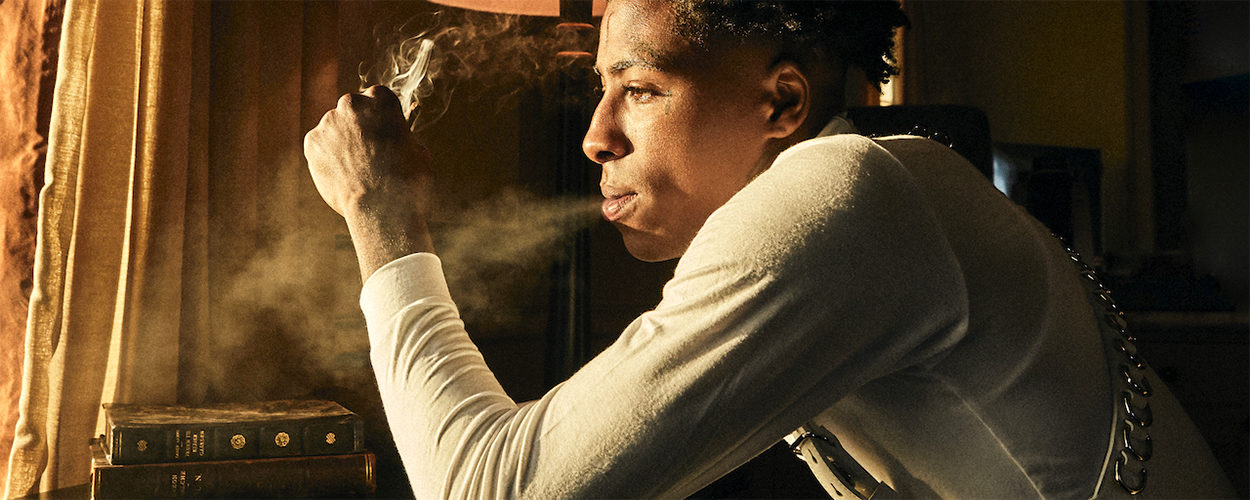This website uses cookies so that we can provide you with the best user experience possible. Cookie information is stored in your browser and performs functions such as recognising you when you return to our website and helping our team to understand which sections of the website you find most interesting and useful.
Artist News Legal
Prosecutors in Youngboy Never Broke Again firearms case can’t use rapper’s lyrics as evidence in court
By Chris Cooke | Published on Wednesday 13 July 2022

The judge overseeing a Californian firearms case involving rapper Youngboy Never Broke Again has ruled that lyrics from the defendant’s music cannot be used as evidence during his trial.
Youngboy – real name Kentrell Gaulden – is fighting firearm possession charges in both California and Louisiana. The former stems from an incident sparked by the latter, and relates to a gun found in the rapper’s car after police stopped and then searched his vehicle last year while responding to an arrest warrant issued in relation to the Louisiana case.
Gaulden fled the scene after his car was pulled over by LA police, which obviously doesn’t help his case. Although his lawyers argue that he was unaware of the arrest warrant at the time and was therefore confused when he found himself pursued by multiple police cars, and saw police approaching his vehicle with their hands on their guns.
As for the firearm subsequently found in Gaulden’s car, the rapper insists he didn’t know it was there, and argues that a third party must have placed it in the vehicle.
Among other things, the prosecution hoped to present in court lyrics from three of Gaulden’s tracks which, they argued, demonstrate the defendant’s “familiarity and knowledge” with and of the specific gun found in his car.
However, Gaulden’s legal team argued that those lyrics offered “very minimal probative value”, and would be “highly prejudicial” to their client, not least because of the negative perception some people have of the genre of music the rapper makes. And the judge hearing the case has sided with the defence on this point, ruling that Gaulden’s lyrics cannot be cited in court.
It’s a relevant ruling because of a growing campaign in the US to stop prosecutors from using lyrics and videos created by defendants in criminal cases, on the basis that – as Gaulden’s lawyers argued – such lyrics and videos usually provide little real context to any criminal proceedings, but can prejudice a jury against a defendant. Using lyrics and videos in that way also arguably breaches a defendant’s free speech rights under the US First Amendment and other free speech laws.
In New York State, new laws are being considered that would actually restrict the use of a defendant’s creative output as evidence in any criminal cases. And Warner Music execs Kevin Liles and Julie Greenwald recently launched a petition calling for similar legal reforms elsewhere in the US, in no small part motivated by the recent arrest of rappers Young Thug and Gunna, and reports that prosecutors in those cases plan to use said rappers’ music as evidence in court.
This story is discussed on this edition of our Setlist podcast.





